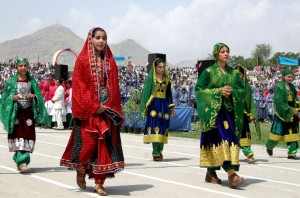Language Door West Los Angeles opened in 2001, and has provided classes in dozens of languages to students from all over the Los Angeles area. Our focus is on small group classes to maximize the interaction between students and teachers. We also offer private lessons, translations, interpreting services, and corporate classes.
Facts About The Pashto Language And Afghanistan
- Afghanistan’s official languages are Dari and Pashto
- Afghanistan is a land-locked country bordering on Iran to the west, Turkmenistan, Uzbekistan, and Tajikistan to the north, a tiny border with China at the northeast, and Pakistan to the east and south.
 Where Is Pashto Spoken
Where Is Pashto Spoken
It is spoken by an estimated 35-45 million people, most of whom reside in Afghanistan or Pakistan. Smaller speech communities exist in Iran, Tajikistan, the United Arab Emirates, and the United Kingdom. There are three main varieties of Pashto: Northern Pashto, spoken mainly in Pakistan; Southern Pashto, spoken mainly in Afghanistan; and Central Pashto, spoken mainly in Pakistan.
Learn to speak Pashto with Language Door Los Angeles Today!
Los Angeles Language Door’s expert teachers offer instruction for students of all ages. We keep our tuition prices low but offer quality instruction in a pleasant environment. We keep the class size small to maximize the interaction between students and teachers. Our teachers are native speakers and offer the hands on training that will enhance your learning experience.

* Now Accepting Enrollment for Fall I Classes
About The Pashto Language
Pashto language, also spelled Pashtu, also called Pakhtu, is a member of the Iranian division of the Indo-Iranian group of Indo-European languages. Extensive borrowing has caused Pashto to share many features of the Indo-Aryan group of the Indo-European languages as well. Originally spoken by the Pashtun people, Pashto became the national language of Afghanistan in 1936.
Origins Of The Pashto Language
Scholars have found it difficult to reach consensus regarding specific claims about Pashto’s origins. Nonetheless, it is clear that the speech community’s location in a contested part of the ancient world instigated extensive contact with, and borrowing from, other languages, including varieties of ancient Greek, Saka, Parthian, and Persian. Pashto also converged with the northwestern Indian languages, especially the Prakrits, Balochi, and Sindhi. From these languages, Pashto acquired retroflex sounds (sounds produced with the tip of the tongue curled against the roof of the mouth) and approximately 5,550 loanwords.
The dialects of Pashto fall into two main divisions: the southern, which preserves the ancient /sh/ and /zh/ sounds, and the northern, which uses /kh/ and /gh/ sounds instead.

